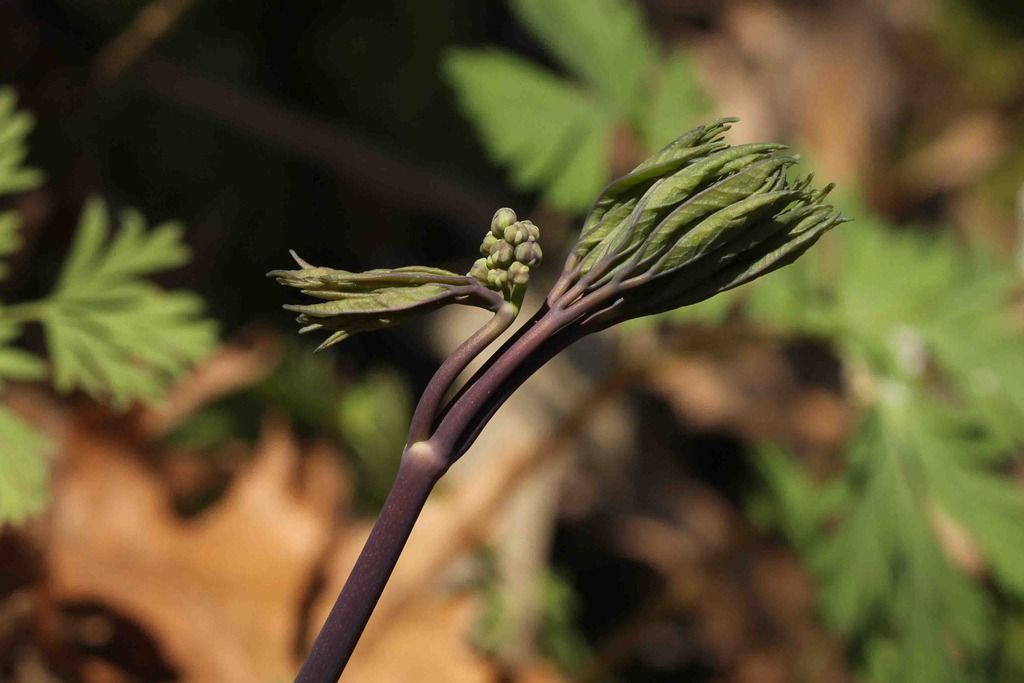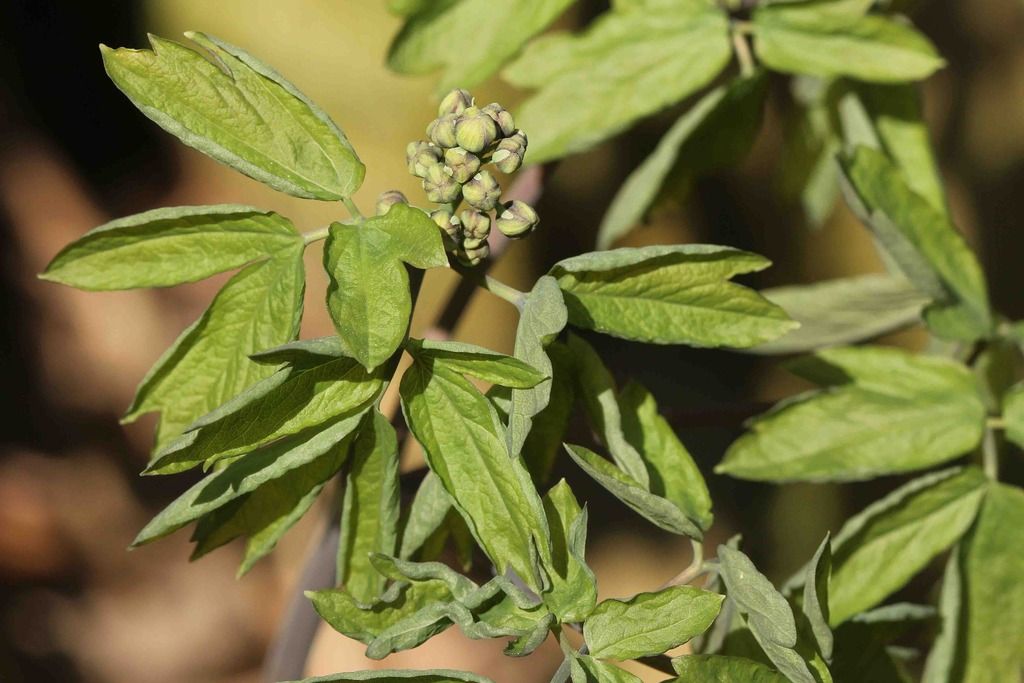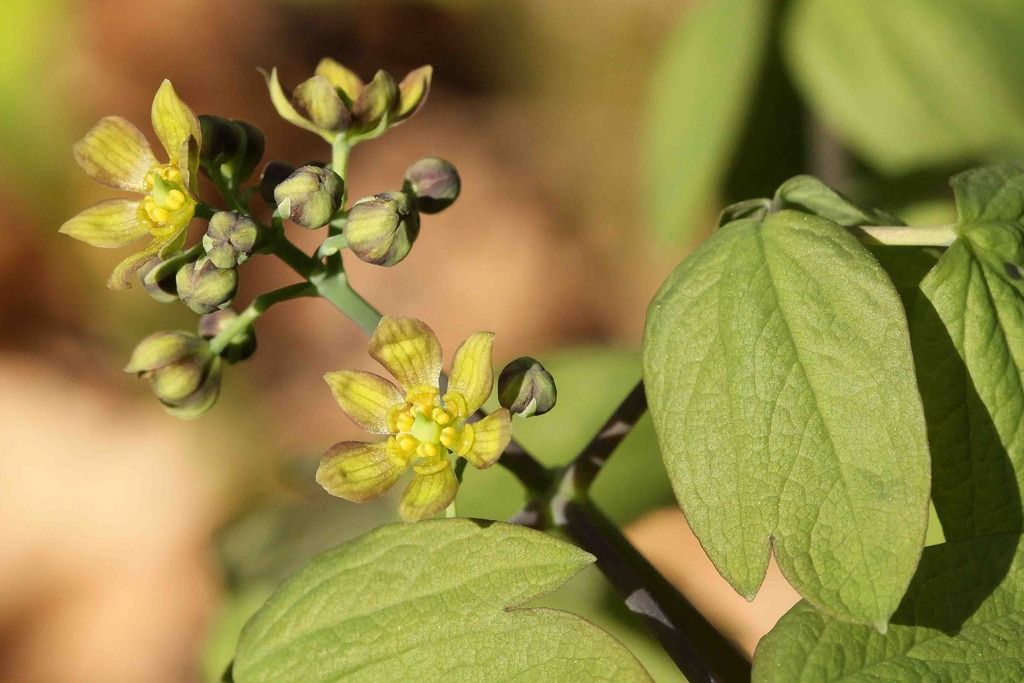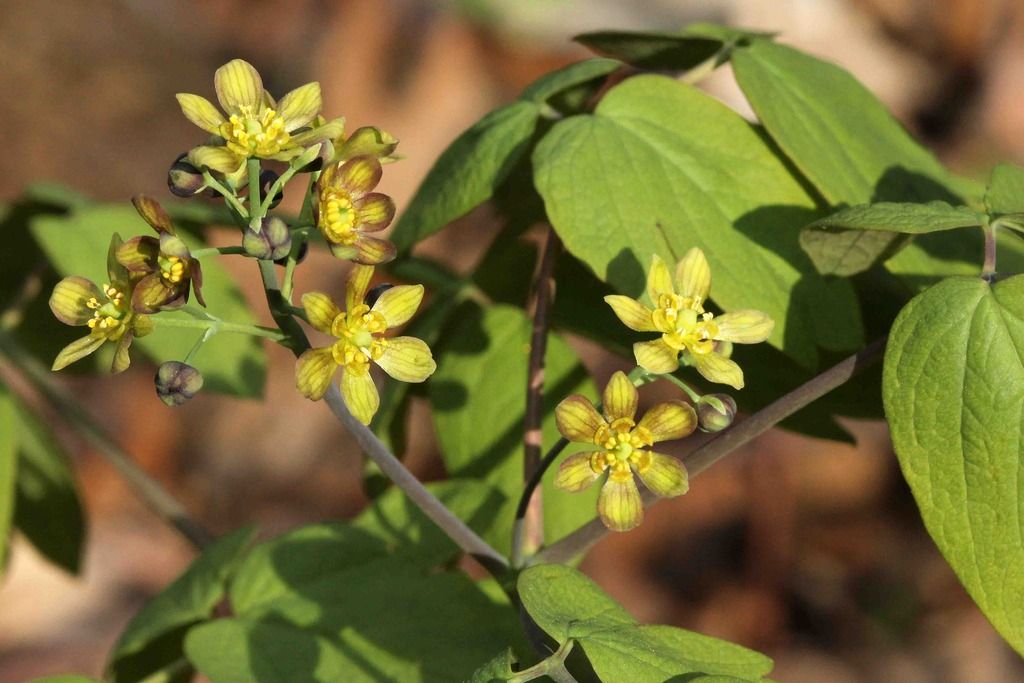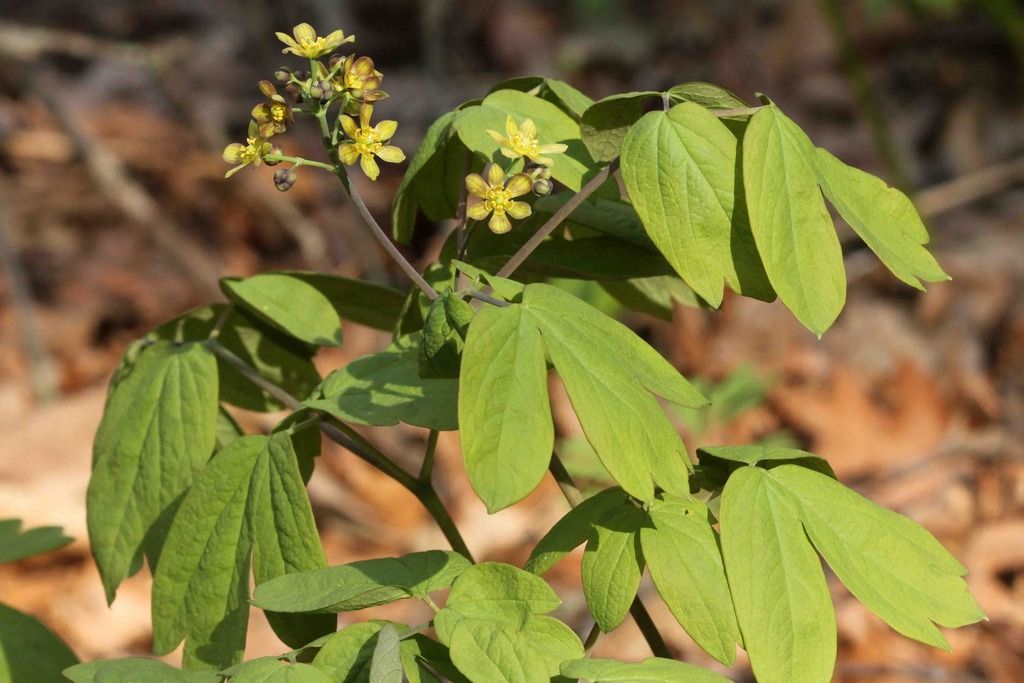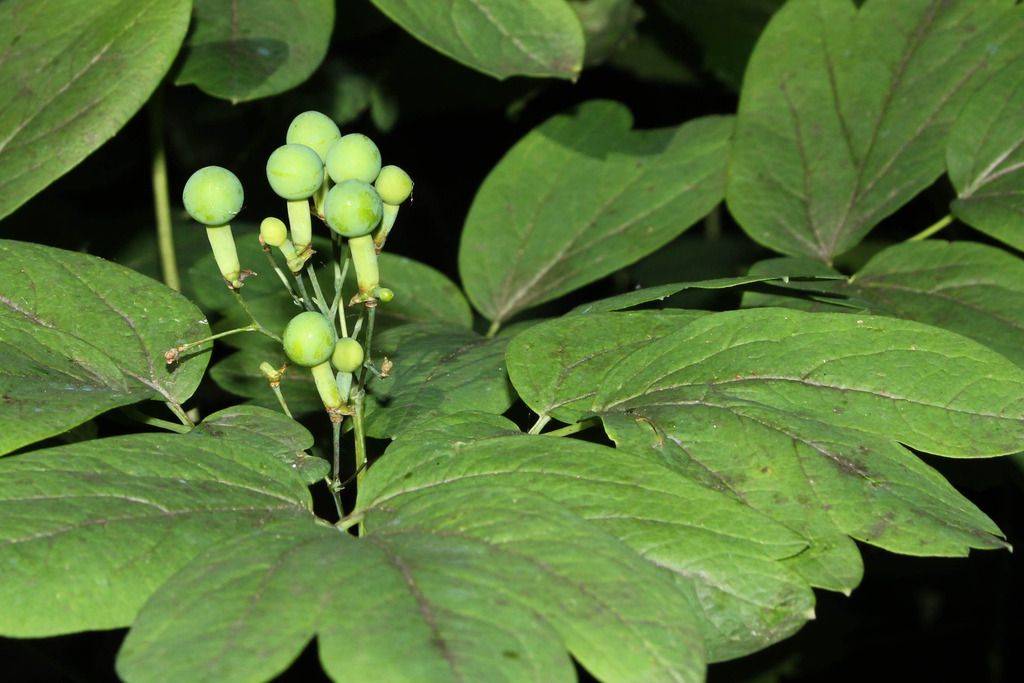Naturalist and photographer Eileen Miller has contributed stunning pictures as well as a description of Blue cohosh (Caulophyllum thalictroides) for today’s installment of Iowa wildflower Wednesday. She found these plants, which are native to most of North America east of the Rocky Mountains, at Dolliver Memorial State Park. I highly recommend visiting that park if you are in striking distance of Webster County. The Iowa Department of Natural Resources website notes,
A unique facet of the sandstone formations at Dolliver are the “Copperas beds.” The towering 100-foot bluff on Prairie Creek is a cross-sectional view of the ancient river bed that is over 150 million years old. Over the ages, the erosive power of Prairie Creek uncovered this unique feature. The porous nature of the sandstone has caused many minerals such as calcite and sulfur to dissolve as the water seeps through. As the water evaporates, the mineral deposits are left behind. You can see many of these deposits in the sandstone cliffs, as well as petrified logs and sticks.
This post is also a mid-week open thread: all topics welcome.
BLUE COHOSH
(Caulophyllum thalictroides)
by Eileen Miller
Blue Cohosh is a medium tall native perennial plant that thrives in moist, shady woodlands with rich, well-drained soil. The greenish-yellow flowers (about 1/2 inch across) sometimes have a reddish tinge. They bloom before the leaves become full sized. The plant has a bluish cast, giving it a sense of mystery. The mature fruits are blue-black in color and are similar in appearance to blue berries. Each fruit contains two seeds.
Native Americans used the plant to facilitate childbirth and also to ease menstrual cramping. Today, Blue Cohosh is used as an herbal medicine to ease painful menstruation, and hasten childbirth. However, this plant contains alkaloids which can cause heart and kidney problems. Given how poisonous the plant and the berries are, it is probably best just to enjoy looking at it. The photos of Blue Cohosh were taken at Dolliver State Park.
Plant just emerging on April 22, 2015 (note the folded leaflets and the flower buds).
Flower buds swelling and leaves unfolding.
Photos of the plant and flowers taken on April 29, 2015.
Fruits developing. not yet ripe. Photo taken on June 10, 2015.

